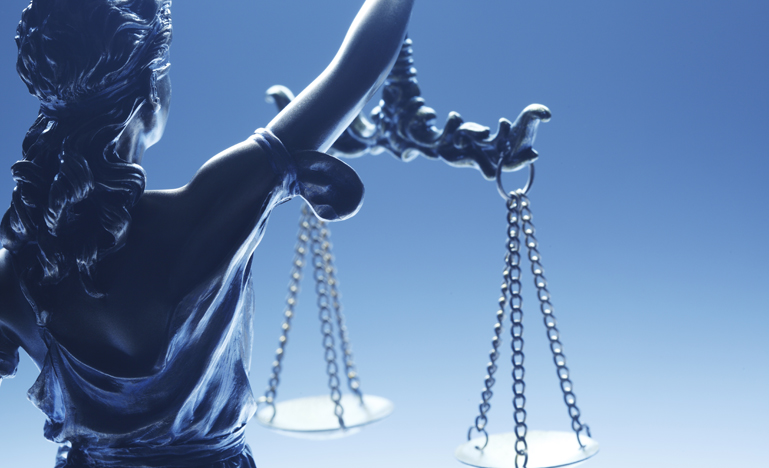Trial and error
The new reverse disclosure rules in sexual assault cases run into constitutional trouble.

Not every kid who read To Kill a Mockingbird in grade school grew up to be a lawyer, but those who did doubtless remember Harper Lee’s deathless advice to advocates everywhere: “Never, never, never, on cross-examination, ask a witness a question you don't already know the answer to …”
And what if the person on the stand knows what you’re going to ask before you ask it?
Last month, a provincial court judge in Saskatchewan hearing a sexual assault case ruled that portions of the federal government’s sexual assault trial reforms, introduced through Bill C-51, are unconstitutional because they undermine an accused’s right to a fair trial.
The sections of the law Judge Bruce Henning took issue with deal with the admissibility of evidence. They’re meant to prevent defence counsel from introducing evidence of a personal nature that would perpetuate the “myths” about sexual assault that so often make the trial experience a frightening and humiliating ordeal for complainants — past sexual history, for example.
Sections 278.93 and 278.94 of the Criminal Code provide for judge-run hearings to determine the admissibility of defence evidence. Complainants can’t be compelled to testify, but they have standing and can make submissions. They can also bring their own legal representation to the hearings.
The problem, said Judge Henning, is that such hearings give a complainant early warning of the type of evidence the defence intends to use in cross-examination — and time enough to “prepare for trial, ready to explain and possibly modify their evidence” by minimizing inconsistencies and omissions in the complainant’s version of events.
“Such modification of testimony is possible and that concern is reflected by the long-standing practice to exclude witnesses from a trial until after their evidence is given,” Henning wrote in his decision.
“This constitutes a serious infringement of an accused person’s ability to challenge a complainant in seeking truth in a trial.”
Because Henning’s delivered his decision at the provincial court level, it has no effect on any other case. But it gives lawyers a pretty good idea of what the inevitable Supreme Court challenge of C-51 will look like.
“These changes (in law) allow the complainant to prepare for cross-examination by getting a sneak peek at the defence evidence,” says Lauren Shadley of Shadley Bien-Aimé in Montréal, and a member of the Canadian Bar Association’s criminal law section executive.
Hanging like a cloud over the debate about C-51’s constitutionality is the Jian Ghomeshi case. The former star CBC broadcaster went to trial in 2016 on multiple charges of sexual assault. Less than two months later he was a free man — in large part due to his lawyer’s efforts in undercutting his accusers’ credibility through cross-examination.
“Certainly, everyone’s impression of this legislation is that it was born out of the Ghomeshi case,” says Jody Berkes of Berkes Law in Toronto.
“In our system, an accused in a criminal case doesn’t have to say a thing in his defence — the accused has the right to remain silent. Cross-examination is an effective tool only if the other side isn’t alerted in advance to points of inconsistency.”
Berkes says that between C-51 and C-75, which greatly limited the availability of preliminary hearings, “the federal government is changing the rules around sexual assault cases. It ends up undermining the presumption of innocence.”
Not everyone agrees. Rosel Kim, staff lawyer at the Women’s Legal Education and Action Fund (LEAF), says C-51 represents a fair balance between an accused’s right to a full defence and a complainant’s right to “privacy, security and equality.”
“Sexual assault cases differ from other criminal trials because complainants are often required to testify and be cross-examined on deeply personal, private and traumatizing details of their assault,” she says.
“Sexual assault trials also have heightened consequences for complainants. For example, if the accused is acquitted, the complainant can be called a liar, and face social consequences and expensive lawsuits. These very real consequences make fairness to the complainant critical.”
Berkes says he fears bringing complainants into evidence hearings with their own legal representation risks eroding the Crown’s role in the court system as guardian of the trial process itself — by introducing a player with a purely adversarial approach to the introduction of evidence.
“The Crown has a role to ensure that the defence receives a fair trial. Sometimes this means that the Crown will consent to admission of evidence that might undermine their case against an accused,” he says.
“As such, there may be occasions when the Crown will concede admissibility, but the complainant will oppose the admission. This takes carriage of the matter out of the control of an impartial minister of justice and introduces the element of pure partisanship. This has a significant possibility of undermining trial fairness for the accused.
“You’ve given the complainant a role in the actual administration of justice, which is problematic.”
In essence, Shadley argues, C-51 creates “an entirely new class of victim,” with unique rights.
“I’m curious to see how (the Supreme Court) interprets these changes,” she says.


